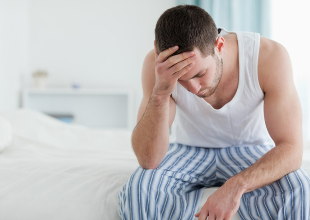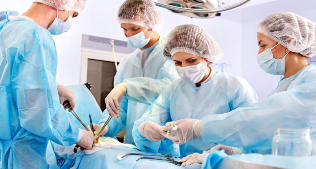Prostatitis — urinary-and genital pathology associated with androgenic type (found only in males). According to the statistics, the symptoms of this disease is observed in half of the representatives of the stronger sex. Most of them were men over 50 years of age. But the prostate inflammation occurs at a young age, on the background of other diseases or as a separate pathology.
The disease is not contagious and sexually transmitted diseases (it is not found in women). But the sex life is often the precipitating factor.

What is prostatitis
It, what is prostatitis, you know, about 40% of men in the entire population of the earth. This disease of the prostate, resulting from attacks of inflammatory agents. As a result of their exposure to the develop of harmful microflora, which if left untreated cause complications.
Prostatitis in men, usually begins acutely, with a demonstration of typical clinical manifestations. But the danger of the disease is that it can be secretly, gradually moving to the chronic stage.
The most prone to inflammation of the prostate gland in men aged 30-50 years, leading a sedentary lifestyle and having bad habits. But recently the disease has started to "look younger" and look up to the young men, aged 20-25 years.
The symptoms of prostatitis
Symptoms of prostatitis in men, rarely appear in the early stages. The primary symptoms are weak, are often left without attention. This causes the transmission of the disease festering in the form or chronic.
Knowing the first signs of prostatitis in men can prevent complications, such as impotence and cancer. What are the symptoms of should pay attention to:
- frequent, painful urination;
- the weakening of potency, early ejaculation, lack of ejaculation, decreased libido;
- pain during defecation;
- pain in the abdomen, sacrum and groin;
- weakness, drowsiness, General malaise;
- sweating;
- increase in body temperature, symptoms of poisoning: headache, fever, etc.
The main symptoms of prostatitis in men is a pain. It can be strong or weak, to give in the hips and groin. Often patients can not determine the source of the pain, because it radiates to other organs.
Dysuric disorders encountered in acute and chronic form of prostatitis in men. They manifest frequent urination, feeling of incomplete emptying of the bladder. Want to disturb even at night, resulting in waking up several times. Toilet leaves a small amount of urine, and the process is accompanied by painful sensations.
Sexual dysfunction is a tendency to increase. One of the main symptoms of prostatitis in men is the decline of erection. With the development of the disease the quality of sexual life worsens, the sex ceases to be fun. A significant deterioration of reproductive ability. An inflammatory disease of the prostate gland in men can cause infertility.
Causes and predisposing factors
Causes of prostatitis are different and mainly related to irregularities prevention and healthy lifestyles. Though often the disease occurs on the background of infectious processes in the urogenital system.
Causes of prostatitis are:
- sexually transmitted diseases std;
- hypothermia;
- lack of exercise (sedentary work);
- blood stasis in the prostate gland and surrounding tissue;
- chronic constipation;
- immunosuppression;
- protection with the help of the interrupted sexual intercourse;
- damage to the perineum;
- wearing tight underwear;
- alcohol abuse, Smoking.
The disease causes the syndrome, prostate inflammation:
- the urethra;
- hemorrhoids;
- foci of bacterial infection;
- diseases of the rectum;
- chlamydia, gonorrhea and other sexually transmitted diseases.
Prostatitis is often the result of unhealthy lifestyle. Precipitating factors are:
- an unbalanced diet prevailing in the intake of foods that increase the body burden (fried, greasy meals, fast food, etc.);
- often stress and their solution with the help of alcohol and drugs;
- Smoking. Reduce the protective functions of the body;
- lack of sleep;
- low physical activity and, conversely, overtraining.
To prevent inflammation of the prostate gland, you need to live a healthy lifestyle, timely treatment of the existing pathology and to use mechanical contraception.
Types and forms of prostatitis
Symptoms of prostatitis depend on the type and form of the disease. This parameter also helps to determine the treatment.
The acute form
This is the beginning of a prostatitis with pronounced clinical symptoms. The reason for the development are micro-organisms that can live in the body forever and will not bring harm. But by reducing the immunity they aktiviziruyutsya and begin to actively proliferate, which affect the urogenital system.
The acute form is characterized by rapid development. First of all, the body temperature rises, so this symptom of pain and discomfort.
The chronic form of the
The symptoms of chronic prostatitis in men is weak or missing. The main symptom is difficult urination, accompanied by pain in the groin.
But the absence of symptoms does not mean that the pathology can pass on their own and are not dangerous to your health. It is a chronic form becomes the cause of benign prostatic hyperplasia and other diseases of the genitourinary system.
The peculiarity of this form is that when reduced immunity, the disease returned in the acute stage. And each relapse becomes more intense and painful.
Distribution of chronic prostatitis occur of the following types:

- Bacteria. The reason are bacteria That aktiviziruyutsya by reducing immunity. Also this type include inflammation of the prostate caused by sexually transmitted diseases. The first sign of bacterial prostatitis is to get the pain and burning sensation during intercourse and urinating.
- Calculous. The reason is the accumulation of stones. This type is rare and mostly older men. Typical feeling when calculous prostatitis comes the pain in the pelvis and in the groin area when walking.
- Stalled. This non-infectious form of the inflammatory process caused by stagnation of blood in the pelvis. Provoking factors is sedentary, lack of exercise. The lack of sex or not. Occurs symptoms such as pain when urinating and the groin.
- Catchy. This type of characters, such as bacterial species. Infectious forms are coming with the fungi and single-celled micro-organisms which penetrate into the other organs of the urogenital system. Precipitating factor is the impaired immunity.
- Purulent. The severe form of the disease, an infectious origin. Signs of suppurative prostatitis in men include the rise in body temperature to 39 degrees and more, the symptoms of intoxication and purulent discharge from the urethra.
The first signs of prostatitis is virtually impossible to determine the shape and type of disease. It is necessary to diagnose and study the condition of the prostate.
The risk of prostate inflammation
In the absence of timely and adequate treatment of prostate inflammation in men, the risk of complications. These are:
- The urethra. Is inflammation of the urinary channel caused by spread from the prostate to nearby organs. But the urethra is not dangerous, but the presence of underlying renal impairment is a serious threat to health and life.
- Vesiculitis. It is an inflammation of the seminal vesicles, which erectile dysfunction, and infertility.
- Abscess. This is a possible complication of purulent forms of inflammation of the prostate, which the prostate gland accumulates pus. Abscess wrong treatment and its absence is fatal.
- Adenoma. Inflammation of the prostate leads to its dysfunction and benign formations. Growth of tissue is BPH.
- Cancer. Adenoma and chronic prostatitis are the main causes of cancer. And because of the weak clinical symptoms, to distinguish it from other diseases of the genitourinary system is very difficult.
- Infertility. The prostate gland is involved in the synthesis of sperm required for successful fertilization. When inflammation of this organ is disturbed, the natural process of procreation.
When inflammation of the prostate gland in men manifest itself in unpleasant symptoms, it leads to mental anxiety. The patient deteriorates the quality of sex life, there are signs of an inferiority complex. Against this background, there is discord in the family, isolation, depression. Therefore, prostate inflammation, and neurological diseases are closely related to each other.
Treatment of prostatitis
Treatment of prostatitis initial diagnosis. For this purpose a digital and ultrasound examination of the prostate, has been appointed the General and biochemical blood analysis, urine analysis. A doctor is the clinical picture of the disease, examine the effect of prostate inflammation in men. Studies demonstrated treatment.
Requires complex treatment, which includes:

- administration of antibacterial drugs;
- the prostate massage;
- physical therapy;
- repair of the immune system;
- diet;
- of folk remedies.
In some cases, surgical treatment is presented. The reasons for surgical intervention are:
- the inflammatory process affects many organs and the pelvis;
- complications of prostate inflammation of benign or malignant tumors;
- ineffective conservative treatment;
- abscess of the prostate;
- urinary retention or difficulty urinating;
- stones in the bladder or kidneys.
Prevention
Around, than to treat prostatitis, said the urologist. He also gives advice on the correction of lifestyle for the prevention of infection and prevent relapse. These are:
- Use of barrier methods of contraception, when you change partner.
- Avoiding alcohol and Smoking.
- Reasonable exercise.
- Correct, balanced nutrition, including foods rich in vitamins and minerals.
- Measured sex life.
To prevent the disease is much easier than curing and as a result of the inflammatory process. And definitely every person need to know how to look for symptoms of acute and chronic prostatitis. After the discovery of the first symptoms should immediately go to the doctor and not to self-medicate.
































